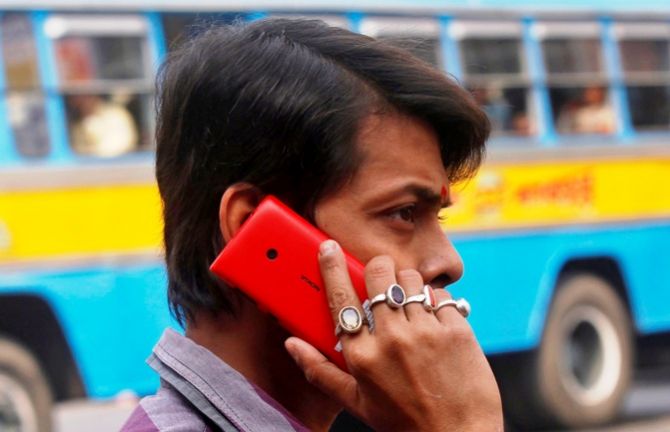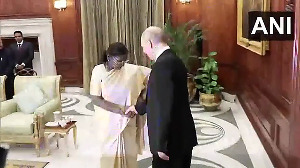
These companies have largest subscriber base in India but have the lowest revenue
Telecom companies on Tuesday told the Supreme Court that the entire sector is under huge debt and they have to pay a big price for spectrum, therefore zero tolerance on call drops should not be imposed on them.
Refuting the allegations by the Telecom Regulatory Authority of India that the telecom service providers are making huge gains in the sector, the companies told the apex court that they have been investing hugely on the infrastructure.
"They (Trai) said that we have been making Rs 250 crore (Rs 2.5 billion) a day but what was not specified was that we are under huge debt.
“We have to pay over Rs 3.8 lakh crores as debt. We are buying spectrum at Rs 45,000 crore (Rs 450 billion), which was earlier Rs 1,658 crore (Rs 16.58 billion.
"We are not gaining anything and our rate of return is less than one percent at the end of a year," senior advocate Kapil Sibal, appearing for telecom operators, told a bench comprising Justices Kurian Joseph and R F Nariman.
The bench reserved its verdict on the issue.
The court's summer vacation starts May 13.
Sibal said that Trai had compared India with China but in that country the spectrum is given for free to the top three telecom companies which are state run.
Sibal said that like Trai worries for consumers, so do the telecom companies and no one wants the call drop to happen but the factors responsible are beyond their control.
"Our tariff is lowest in the world.
“We are serving over one billion subscribers in India and we are one of the largest contributor to foreign direct investment and provide a million of jobs," Sibal said.
He said that although telecom companies have largest subscriber base in India but have the lowest revenue and also the industry's revenue is gradually going down.
Sibal refuted the allegations of Trai that Telecom companies are not investing on technology and towers and said that in past 15 months over two lakh towers have been installed.
"We have installed over two lakh towers in past 15 months and every third minute a tower is being installed.
“What has been done in past fifteen months has not been done in past 20 years," he said.
Attorney General Mukul Rohtagi countered the arguments and contended that it is possible to trace the cause and the penalty is intended to help the consumers.
The bench consisting of Justice Kurian Joseph and Justice R F Nariman heard both sides for about two weeks before reserving their judgment.
COAI, a body of Unified Telecom Service Providers of India and 21 telecom operators, including Vodafone, Bharti Airtel and Reliance, have challenged the Delhi High Court order upholding Trai's decision making it mandatory for them to compensate subscribers for call drops from this January.
The Trai had earlier told the apex court that it will take action against the Telcos for call drops to protect the interest of consumers as these service providers are not willing to compensate them.
The regulatory body had told the court that it has to safeguard 100 crore (1 billion) telecom subscribers and if companies agree to compensate call drops with equal number of free calls to consumers without pre-conditions then it is open to re- consider its direction imposing penalty on them.
It had also told the court that a "cartel" of 4-5 telecom firms having a billion subscribers are making Rs 250 crore (Rs 2.5 billion) a day but not making investments on their network to improve services to check call drops.
The Delhi High Court had early this year upheld the October 16, 2015 decision of Telecom Regulatory Authority of India, making it mandatory for cellular operators to pay consumers one rupee per call drop experienced on their networks, subject to a cap of Rs 3 a day.
Image: A man uses a Nokia mobile phone to make a call on a street in Kolkata. Photograph: Rupak De Chowdhuri/Reuters











